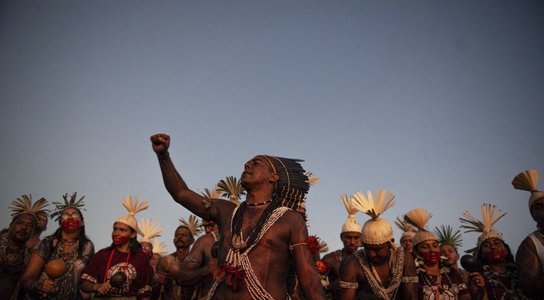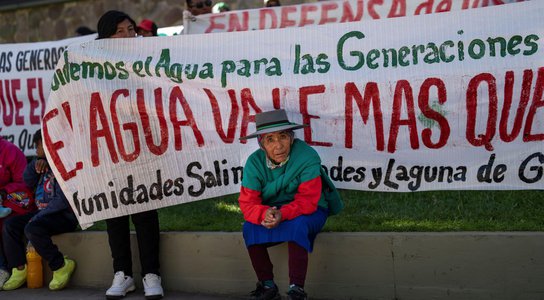Efforts to address the global climate emergency are leading to an increased demand for renewable energy technology, including electric vehicles and the batteries required to power them. Africa is one of the new frontiers in a race for battery metals. Lithium – sometimes referred to as ‘white gold’ – is one of the most sought-after commodities.
- Download the policy brief (1.3 MB), pdf
Global Witness investigated three emerging lithium mines in Zimbabwe, Namibia and Democratic of Congo (DRC). Our report shows that the rush for lithium on the continent – far from delivering a ‘just energy transition’ – risks fuelling corruption, and a range of other environmental, social and governance (ESG) issues.
These cases show that as the lithium rush ramps up, some of the risks facing mineral-rich countries are all too real. The mineral supply chains needed for the electric vehicle (EV) revolution should benefit producer nations. Instead, they could embed corruption, fail to develop local economies, and harm citizens and the environment. Battery makers, car firms and policy-makers in consumer countries must ensure that battery mineral supply chains are rigorously screened for corruption and other ESG risks.
China has achieved a head start on the rest of the world in terms of lithium processing and EV battery manufacturing. In response western leaders are keen to secure their own access to battery metals, while paying lip service for the need for supply chains to be ‘sustainable’.
However, consumer governments’ policies on critical minerals need to be far more robust to ensure that mining benefits citizens in the Global South. Under the EU’s proposed Critical Raw Materials Act (CRMA), the EU will select ‘Strategic Projects’ that can benefit from fast-tracking and access to finance and will also increase ‘Strategic Partnerships’ with third countries. But the CRMA has been criticised by NGOs, who say it risks “exacerbating human rights and Indigenous rights violations, increasing environmental risks, undermining development in third countries, and circumventing democratic participation.” In an open letter NGOs have called for the CRMA to “ensure effective social, environmental and governance safeguards and provide meaningful participation to local communities, Indigenous Peoples, and civil society in resource-rich countries.”
The EU’s Battery Regulation will oblige battery makers to undertake human rights and environmental due diligence on their mineral supply chains, but much will depend on how rigorously the regulation is enforced by EU member states. Meanwhile critical mineral policies of other major consumer countries such as the US, UK and China contain next to nothing in the way of obligations on companies to source battery minerals in a socially and environmentally responsible manner. For the time-being, governments seem largely content to let the mining industry self-police in the form of voluntary standards and certification schemes.
The issues that are emerging in the lithium sector require a response from policy-makers both in Africa and in the Global North as well as from companies. Read our full policy briefing with key recommendations below.


